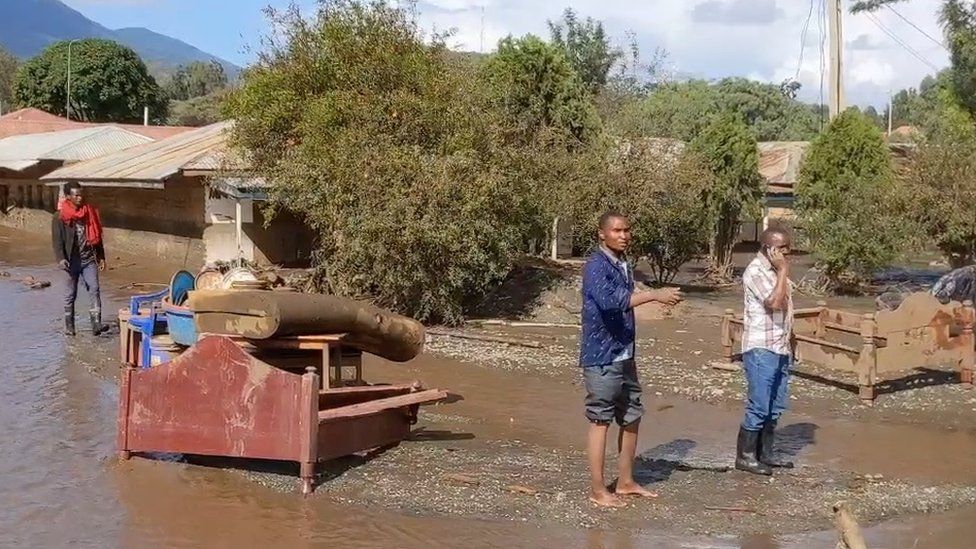
The death toll from flooding and landslides in northern Tanzania has risen to 63.
In order to deal with the impact of the heavy rains, President Samia Suluhu Hassan is cutting short her attendance at the COP28 climate summit in Dubai.
Homes, infrastructure and farmland have also been damaged.
Massive floods are sweeping through countries across East Africa, with the El Nino weather phenomenon partly to blame.
Tanzania’s government said 400 rescue workers have been sent to the northern Hanang district.
However, rescuers are operating under challenging conditions, such as defective telecommunications and blocked, damaged roads, the president’s spokesperson, Zuhura Yunus, said in a statement released on Monday.
“President Samia, who has been in Dubai for the United Nations Conference on Climate Change (COP28) has decided to cut her trip short and arrive in the country as soon as possible to deal with this disaster,” Ms Yunus said.
President Samia was among the dozens of world leaders who gathered at the major UN summit to discuss tackling climate change.
COP28 began on 30 November and will run until 12 December.
The president has ordered her government to pay for the funerals of those killed by the flooding and landslides, according to Ms Yunus. She also has directed the government to cover hospital fees for the wounded and temporary housing for those whose homes were “washed away”.
Dr Godwin Mollel, Tanzania’s Deputy Minister of Health said: “We have a team of doctors and medical officers deployed. The services are much better and many of the patients are progressing well.”


Fanuel John, a father of four from a village called Gendabi, has been searching for his missing wife and children.
He had heard the sound of water pouring when he went outside, what he said was “the roar of a ravine”. Turning his head, he saw water rushing toward him.
“I quickly told my wife and kids to hurry outside, and we climbed one of the big trees,” he told the BBC. “As we ascended the tree, I realised that a flood was approaching.”
“I was shocked to see all the trees falling. Different kinds of trees were down. I urged my family to pray,” he added.
Then, waters reaching around six feet (1.8m) surrounded the family.
“We were separated, and that was the last time I saw them,” he said.
Another survivor, Samuel Mtinda, heard “a sound like a car noise passing by” and looked outside.
“I saw our house and neighbours houses are flooded with water and rocks,” he said. “I told my wife and kids to run to the school ground. We continue to run until we found a safe spot.”
Flooding is said to be the greatest natural hazard in Tanzania, affecting tens of thousands of people each year.
Last month, higher than usual rainfall resulted in deaths and destruction to property in the main city, Dar es Salaam, and some other areas.
Crops in some parts of the country have been washed away, affecting people’s livelihoods.
Tanzania’s meteorology agency has warned that the rains will continue this month.
Additional reporting by Munira Hussein


